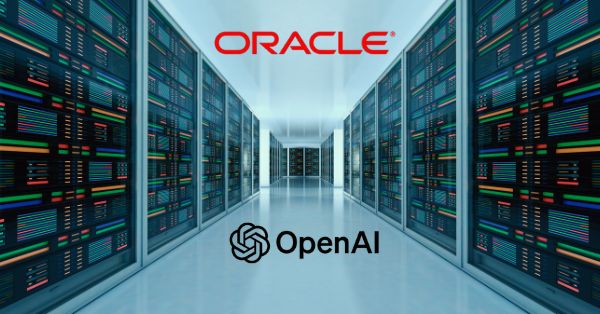Overview of the Global Telco AI Alliance Joint Venture Agreement
At TM Forum’s DTW24 – Ignite, the Global Telco AI Alliance (GTAA) founding members officially signed a Joint Venture agreement. This significant step aims to co-develop and launch a multilingual Telco Large Language Model (Telco LLM) designed to enhance customer interactions and AI-driven solutions for telecommunications companies.
Prominent figures from SK Telecom, Deutsche Telekom, e&, Singtel, and SoftBank Corp. were present to sign the agreement. Attendees included SK’s Chairman Chey Tae-won, SKT’s CEO Ryu Young-sang, Deutsche Telekom’s CEO Tim Höttges, e& Group’s Group CEO Hatem Dowidar, Singtel Group’s CEO Yuen Kuan Moon, and SoftBank’s CISO Tadashi Iida. The goal is to develop multilingual LLMs optimized for the needs of telcos, with initial fine-tuning already underway.
Investment and Goals of the Telco AI Joint Venture
The Joint Venture (JV) will receive equal investments from its founding parties to meet its initial working capital needs. This investment will support the development of the Telco LLM, which will help telecommunications companies improve customer interactions via digital assistants and other innovative AI solutions. The JV aims to deploy these AI applications across markets, reaching a global customer base of approximately 1.3 billion across 50 countries. The Telco LLM will support multiple languages, including Korean, English, German, Arabic, and Bahasa, among others. The launch of the JV is pending customary regulatory approvals.
GTAA Reaffirms Commitment at Second GTAR
The second Global Telco AI Roundtable (GTAR) was also held at DTW24, reaffirming the GTAA’s commitment to innovation and collaboration in the telecom industry. The GTAR showcased the progress made by the GTAA, along with AI governance systems and use cases transforming the telecom landscape.
SK Telecom CEO Highlights AI’s Potential in Keynote
Ryu Young-sang, CEO of SK Telecom, delivered the keynote speech, emphasizing the transformative potential of AI in the telecom industry. He highlighted the Global Telco AI Alliance’s position as a key player in the global AI ecosystem. CEO Ryu mentioned that the Telco LLM JV would create new business opportunities and enhance customer experiences. He also stressed the importance of addressing social and environmental responsibilities associated with AI through an effective AI governance framework.
Ryu Young-sang, CEO of SKT: “We as telcos need to develop tailored LLM for the telco industry to make telco operations more efficient, which is a low-hanging fruit. Our ultimate goal is to discover new business models by redefining relationships with customers. The Global Telco AI Alliance brings synergy to its members by allowing them to achieve more by working as a team.”
Industry Leaders Discuss AI Innovations and Challenges
The keynote was followed by a panel discussion with Suk-geun Chung (SKT), Harrison Lung (e&), William Woo (Singtel), and Jan Hofmann (Deutsche Telekom). The panelists updated GTAA’s progress and shared their perspectives on using AI to tackle industry challenges and unlock new opportunities. They also discussed AI governance and the efforts of the founding parties to ensure responsible AI practices.
How Telco LLM Enhances Customer Service and Operations
The founding parties demonstrated potential applications of the Telco LLM in contact centers and infrastructure management. For contact centers, the LLM can generate real-time reference answers for agents during calls and automate post-call tasks. For infrastructure, the model can streamline workflows by providing answers to operators’ questions.
Why Telco-Specific LLMs Outperform General Models
Compared to general LLMs, telco-specific LLMs are more attuned to the telecommunications domain and better at understanding user intent. By making it easier for telcos to deploy high-quality generative AI models swiftly and efficiently, telco-specific LLMs are expected to help accelerate the AI transformation of various telco businesses and services, including customer service.
Improving Telecom Customer Service with AI
Telcos’ customer service data is used to fine-tune the model for telco-specific questions. This ensures the LLM understands the unique language and needs of telecom operators, paving the way for enhanced, personalized, and efficient customer experiences. For instance, it can handle specific queries related to tariffs, contracts, and special hardware like routers.
Leaders Share Insights on AI and Telecom Transformation
Claudia Nemat, Board Member Deutsche Telekom for Technology and Innovation: “We want our customers to experience the best possible service. AI helps us do that. Already today, more than 100,000 customer service dialogs a month in Germany are handled by Generative AI. By integrating telco-specific large language models, our ‘Frag Magenta’ chatbot becomes even more human-centric: AI personalizes conversations between customers and chatbots. And our joint venture brings Europe and Asia closer together.”
Dena Almansoori, Group Chief AI and Data Officer, e& group: “This is a monumental step for e& and for the Telco industry at large. From streamlining customer support interactions to enabling personalised recommendations, this multi-lingual LLM will revolutionise how businesses engage with customers.”
Yuen Kuan Moon, Group Chief Executive Officer, Singtel: “This promises to be a game changer not just for us at Singtel but for any telecom company out there looking to lift their customer experience beyond limited automated responses and generic chatbot interactions. This multi-lingual LLM tailored for telcos will greatly expand chatbot capabilities with relevant responses to customers’ technical queries, freeing up service agents to deal with more complex customer issues and we intend to deploy this across the Singtel Group.”
Hideyuki Tsukuda, Executive Vice President & CTO of SoftBank Corp.: “Through a powerful alliance with industry leaders, we embark on a mission to revolutionize global communication, elevate service quality, and ignite a new era of technological innovation powered by AI. Together, we have the power to shape the future of telecommunications, empowering communities worldwide with seamless connectivity and boundless opportunities.”
Meet the Founding Companies of the Global Telco AI Alliance
SK Telecom: SK Telecom has been a leader in the mobile industry since 1984, focusing on driving innovations in AI. The company is transforming into an AI-centric organization, enhancing customer experiences and delivering greater value across industries. For more information on SKT GenAI Investments, partnerships, and strategies, visit SK Telecom.
e&: e& is a global technology group with a strong financial performance. Founded in Abu Dhabi, e& has a significant presence across 32 countries. The company focuses on digital solutions, smart connectivity, and advanced technologies. Learn more at e&.
Singtel: Singtel is a leading communications technology group in Asia, offering services ranging from 5G to cloud infrastructure. Singtel is dedicated to continuous innovation and providing exceptional customer experiences. Visit Singtel for more details Singtel.
SoftBank Corp.: SoftBank Corp. operates telecommunications and IT businesses globally, expanding into non-telecom fields through its “Beyond Carrier” strategy. The company is leveraging 5G, IoT, and AI to drive next-generation infrastructure. For more information, visit SoftBank Corp.
Deutsche Telekom: Deutsche Telekom is a key player in the telecom industry, focused on providing innovative solutions and enhancing customer experiences. For more details related to GenAI, visit Deutsche Telekom. This joint venture marks a significant milestone in the telecom industry’s AI journey, promising enhanced customer experiences and innovative solutions tailored to the needs of telecommunications companies worldwide.






























